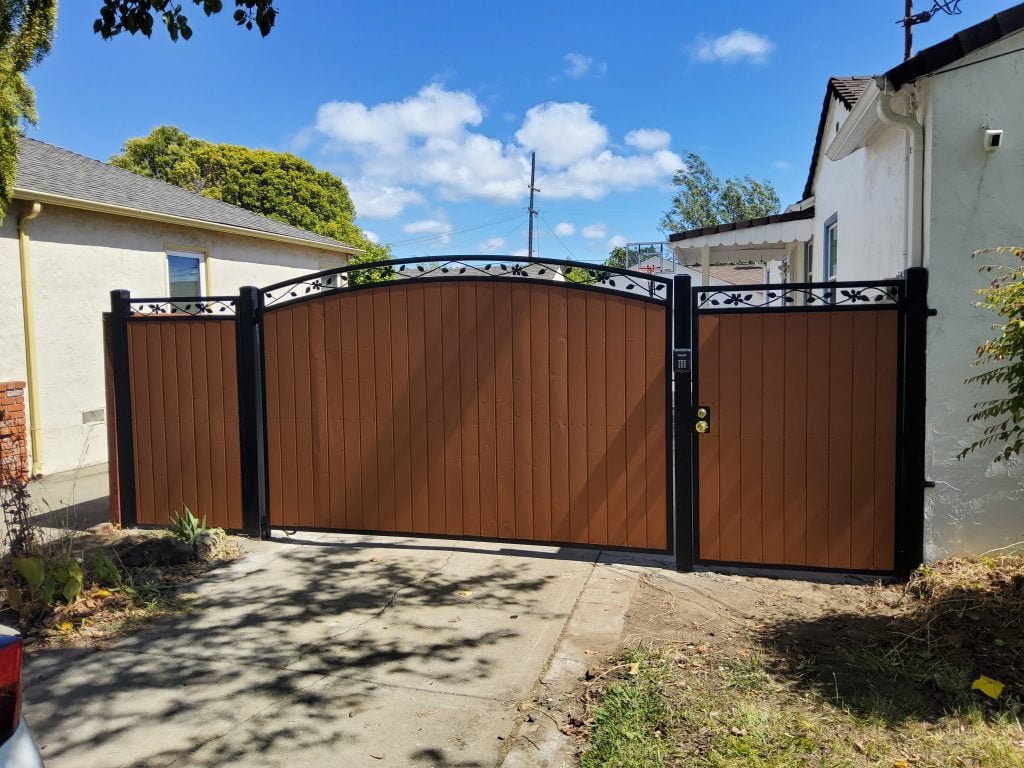As a homeowner or business owner, one of the crucial things you need to consider is the security of your property. Among the many options available, gates are a reliable way of securing your property. Now, there are two types of gates to choose from – automatic and manual. You might be wondering which type of gate is the right one for you. In this article, we’ll take a look at the pros and cons of both types of gates to help you make an informed decision.
Automatic Gates vs. Manual Gates: What’s the difference?
Automatic gates are powered by a motor, which allows them to open and close automatically. They come with a variety of features such as remote control, sensors, and automatic locking systems. On the other hand, manual gates are operated by hand. A person is required to open or close the gate, and they can be secured using a padlock or a key.
Pros and Cons of Automatic Gates
Pros:
1. Convenience- With automatic gates, you can open and close your gate with ease. This is particularly beneficial for people who are always on the go, for instance, business owners who don’t have the time to get out of their cars to open the gate.
2. Security- Automatic gates come with an automatic locking system that keeps your home or business secure. Most of them have sensors that detect when someone is trying to force the gate hence adding an extra layer of security.
3. Curb Appeal- Automatic gates can enhance the look of any property. They come in a variety of styles and designs, so you can choose one that complements your property’s aesthetic appeal.
4. Increases property value- Automatic gates offer numerous benefits that increase the value of your property.
Cons:
1. Cost- Automatic gates are more expensive than manual gates. They require a power source, and the installation process is more complicated.
2. Maintenance- Automatic gates are complicated systems with numerous moving parts, which means they require periodic maintenance. If you don’t maintain them, they might not function correctly, leading to expensive repairs.
3. Power failures- Since automatic gates rely on a power source, they can be affected by power failures. This means that you might get stuck outside or inside your property until power is restored.
Pros and Cons of Manual Gates
Pros:
1. Affordability- Manual gates are less expensive than automatic gates. They don’t require a power source, which makes them an ideal choice for anyone who is on a budget.
2. No power outages- With manual gates, you don’t have to worry about power outages. You can open and close them at any time, even when there is a power failure.
3. Easy to install- Manual gates are easy to install since they don’t require a power source. Anyone with basic DIY skills can handle the installation process.
4. Low maintenance- Manual gates don’t have many moving parts, which means they don’t require much maintenance.
Cons:
1. Inconvenience- Manual gates are operated by hand, which can be inconvenient for people who are always on the go. If you have a business, manual gates might take up time that could be spent on other tasks.
2. Security- Manual gates can be less secure compared to automatic gates. They can be easily forced open or left unlocked accidentally.
3. Curb appeal- Manual gates are not as visually appealing as automatic gates. They look plain and boring and can be an eyesore on your property.
FAQs
1. How do I choose between a manual and an automatic gate?
The choice between a manual and an automatic gate depends on various factors such as budget, security needs, convenience, and aesthetic appeal. If you’re on a budget and don’t require maximum security, a manual gate might be the right one for you. However, if you’re concerned about security and convenience, then an automatic gate might be the right fit.
2. Can I convert a manual gate to an automatic gate?
Yes, it is possible to convert a manual gate to an automatic gate. However, this will depend on the design and condition of your manual gate. It is advisable to consult with a professional to determine whether or not your manual gate can be converted.
3. How much does it cost to install an automatic gate?
The cost of installing an automatic gate depends on various factors such as the type of gate, design, and materials used. The installation process can range from $3,000 to $10,000, depending on these factors.
4. How often should I maintain my automatic gate?
Automatic gates require periodic maintenance to ensure they function correctly. You should have your automatic gate inspected and serviced annually by a professional technician to avoid costly repairs.
Conclusion
In conclusion, the choice between a manual and an automatic gate depends on several factors. If you’re looking for convenience, security, and aesthetic appeal, automatic gates might be the right choice for you. However, if you’re on a budget and require a gate that is low maintenance, a manual gate might be the right fit. Regardless of the choice, it’s essential to ensure that your gate is installed correctly and maintained regularly to keep your property secure.


